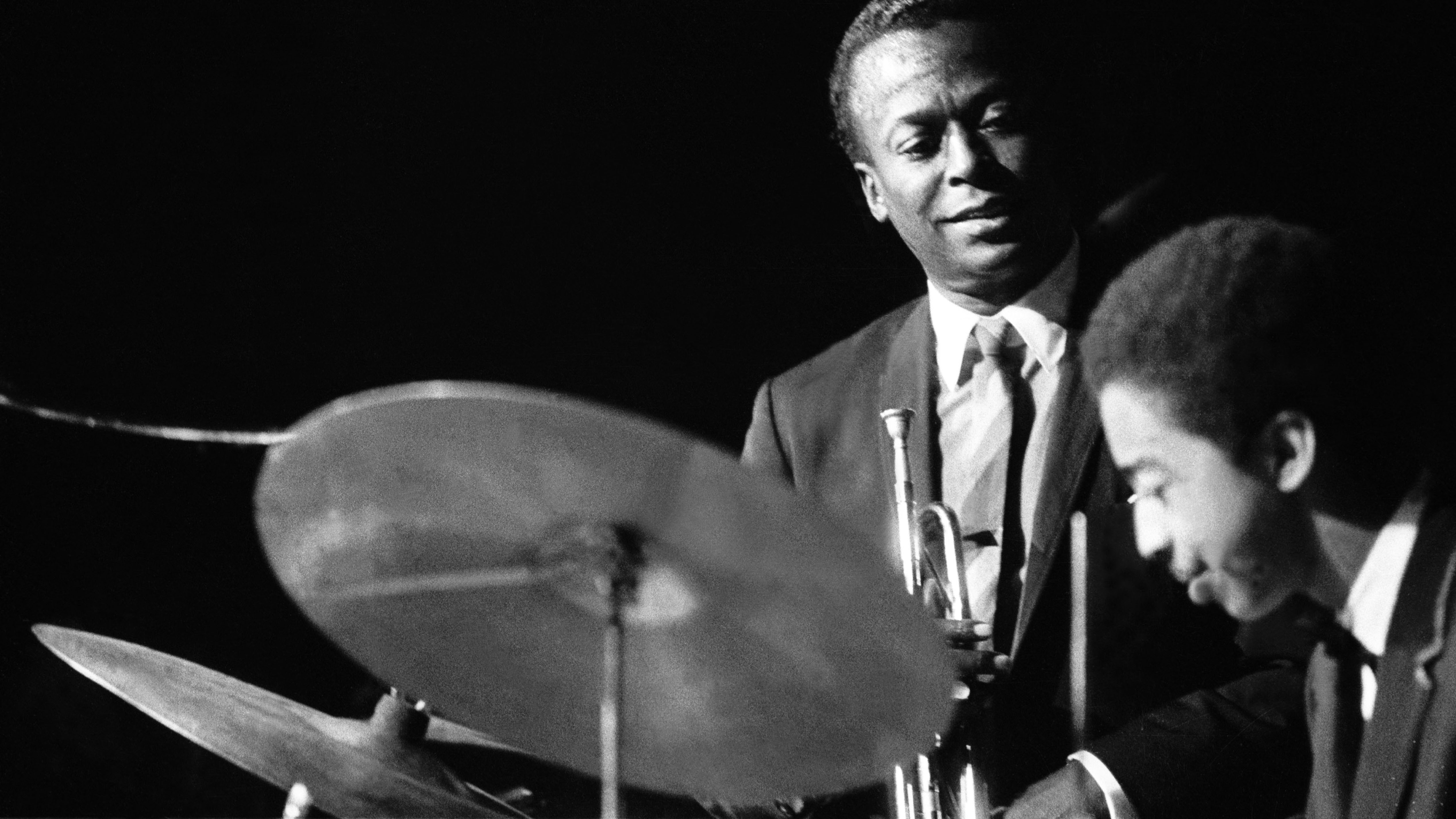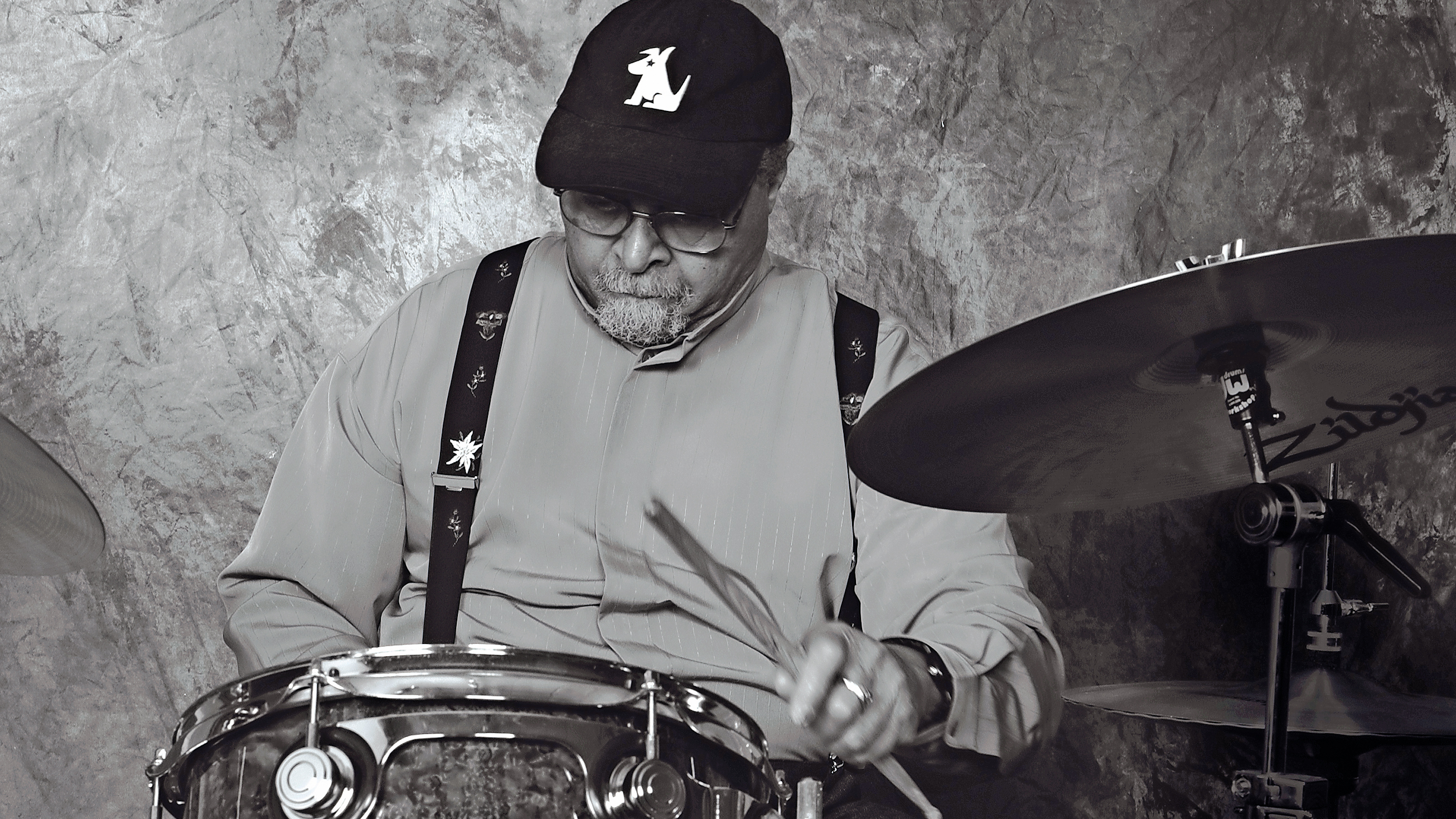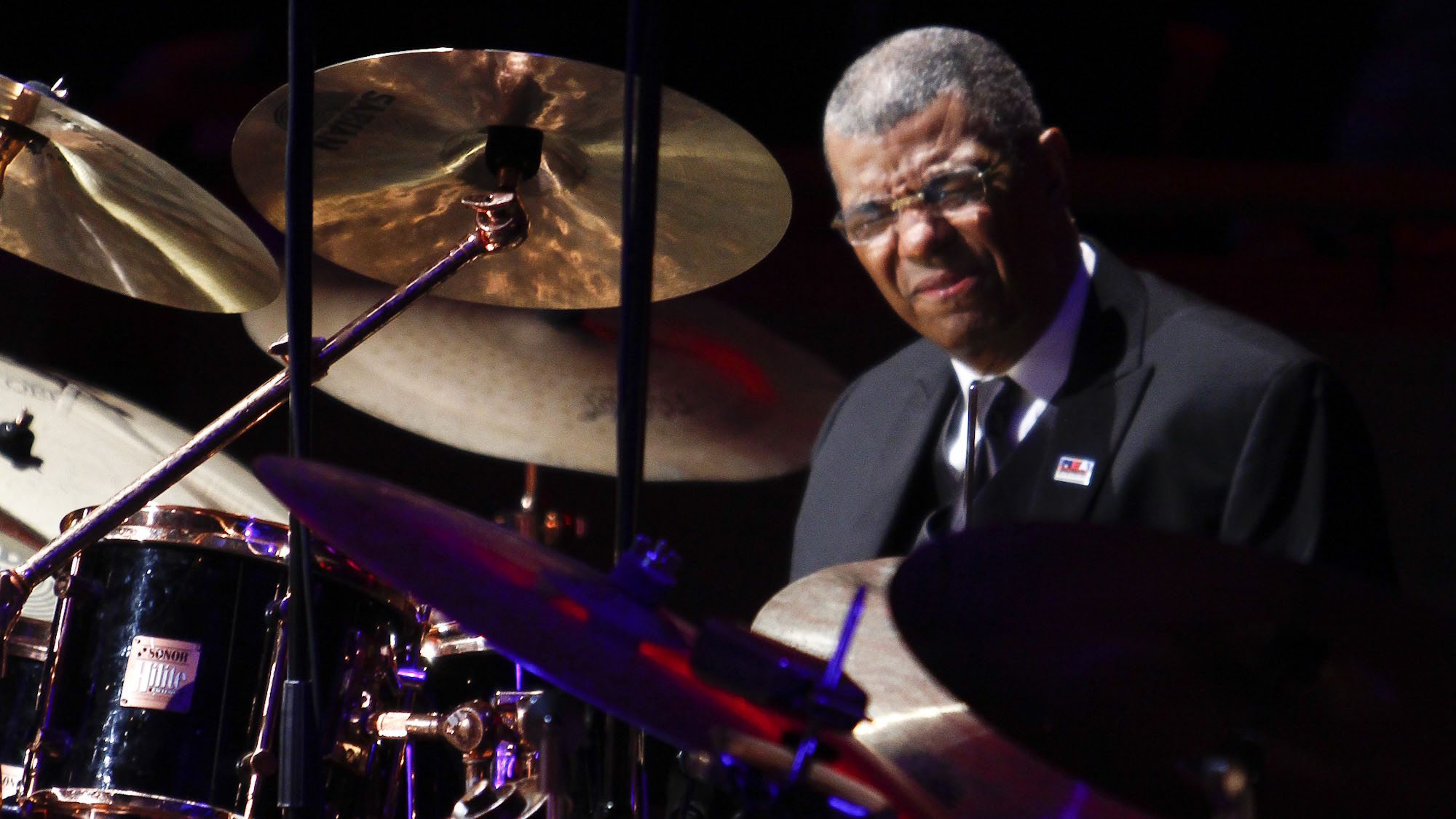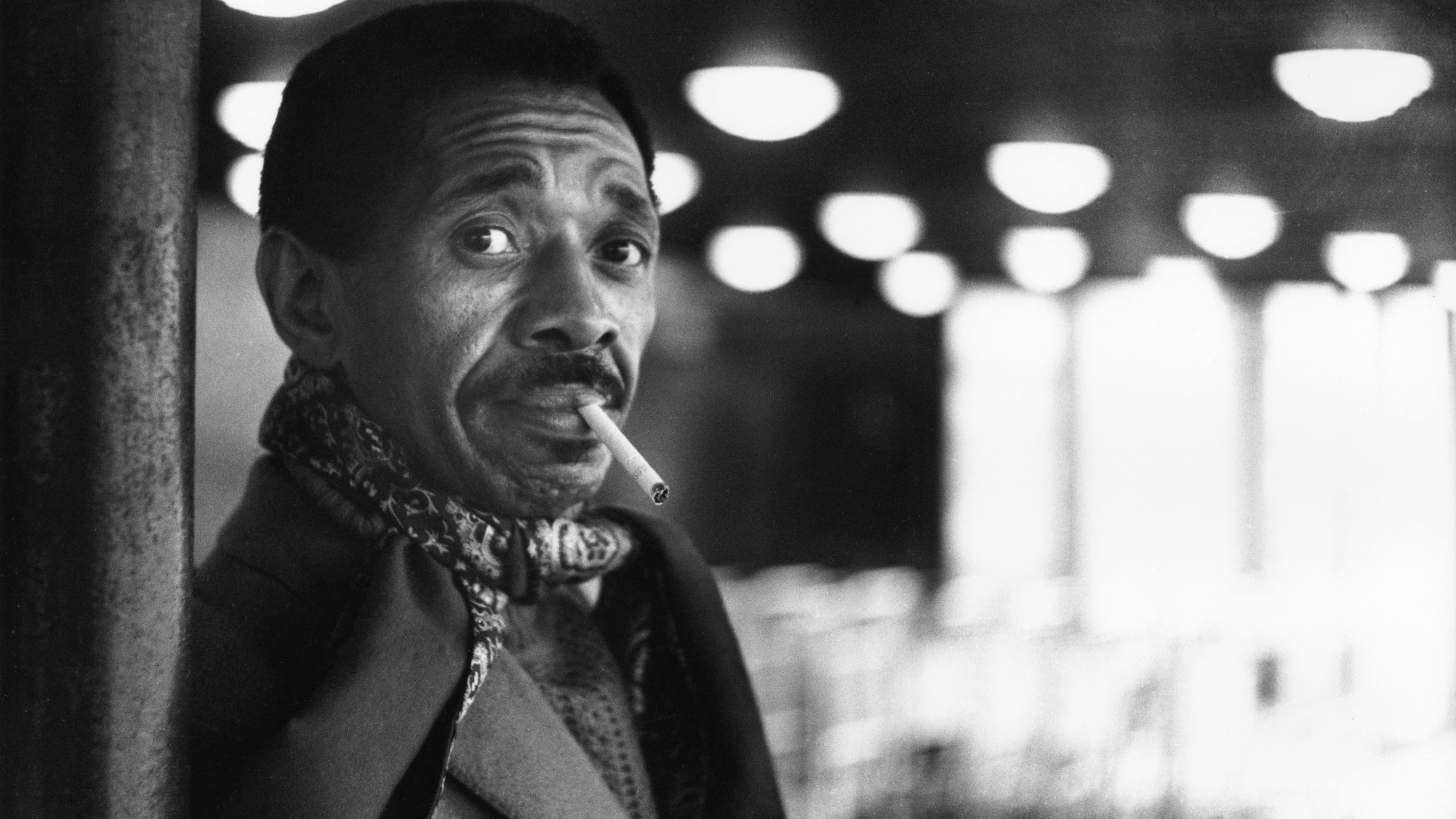The Drummers of Miles Davis
The Miles Davis drumming quintet...

Tony Williams
Tony Williams was one of the last great jazz drummers, whose career began at the tender age of 17 when Miles Davis picked him to play in his band.
After five years with Davis – during which time he played on great albums such as E.S.P. alongside Davis, Wayne Shorter, Herbie Hancock and Ron Carter as part of Miles’ ‘second great quintet’ – Williams went on to form his own Lifetime band, whose innovative fusion of heavy rock and jazz was ahead of its time.
Tony Williams tragically passed away in 1997, aged just 51, but to this day remains massively influential, a true drumming legend, unique both as a performer and composer. Back in 1990, Tony had this to say about working with Miles.
“He was great. I found him… mixed. He’s a very strong person, a very strong man, he has a very dynamic personality. I’m privileged and honoured to have spent those years of my life with him – they were good formative years.
“Before I met Miles he was my idol. I was always interested in and affected by music, and Miles Davis’ sound was, and still is, very unique. His music touched me very deeply. By the time I got to work with Miles I felt that it was something I was supposed to be doing, so my attitude changed a bit, I felt the best prepared for the job. Looking back on it I think, ‘Wow, what did I do? That was really something that I got into.’ But at the time I thought it was quite natural.”
Here's Tony with Miles in 1963.

Jimmy Cobb
Many consider 1959 to have been the most creative year in jazz history. Well, it was certainly the year that Miles Davis released Kind Of Blue, the album that has become the biggest-ever-selling jazz record.
Jimmy Cobb was the drummer and he is still touring today, aged 84, the sole survivor of that extraordinary unit that included saxophonists John Coltrane and Julian ‘Cannonball’ Adderley, pianist Bill Evans and bassist Paul Chambers.
“Philly [Joe Jones] had been missing gigs,” Jimmy reveals in this month’s (May) Rhythm, “and Cannonball [Adderley] said come and sit with us – in case Philly doesn’t show, you can play. So I knew what they were doing and when my time came I stepped right in. They were playing ‘Round About Midnight’ and they got to the part that goes [taps rhythm]… I played that and I was in. There was not a whole lot of rehearsing with Miles.”
Asked which of Miles albums’ Cobb played on, he told us:
“Maybe Porgy And Bess. And Kind Of Blue is standing up pretty good. At Carnegie Hall (1961) is okay. I made some of Sketches Of Spain and Elvin Jones was like the percussion player on it.”
On what Miles Davis was like, Jimmy revealed:
“He was a timid, introverted little guy. He wasn’t what they [later] made him out to be, a monster. If he got up there and played and turned his back it was just that he wanted to get out of the way, where the guys were, so he had a feeling [for the music].”Here's Jimmy Cobb in action with his So What band.

Lenny White
In 1969, Miles Davis released a double album, Bitches Brew, which heralded the jazz-rock fusion movement. Just as he’d previously plucked the 17-year-old Tony Williams to drum on Seven Steps To Heaven (1963), this time he chose the teenaged Lenny White.
On hooking up with Miles for the first jazz-rock fusion album, Lenny told Rhythm in 2011:
“I did a gig with a mutual friend of Miles Davis and he said, ‘Man, has Miles heard you play?’ I said, ‘No,’ and he said, ‘I’m gonna tell him.’ I said, ‘Right, sure!’ But next thing I know I get a call to be at Miles’s house for a rehearsal. It was Jack DeJohnette, Dave Holland, Wayne Shorter and Miles and all we did was rehearse the beginning of Bitches Brew and he said, ‘Be at Columbia Studio at 10 o’clock tomorrow.’”
“That record stands the test of time. A day later Jimi Hendrix played the last note at Woodstock. It’s a reflection of what was going on musically and culturally at the time. Miles for us was the epitome, he was ‘it’. We didn’t just want to play in his band, we wanted to //be// Miles Davis. I got the opportunity to play and talk with him and he directed me and showed me things. He was a great teacher. I was in awe of Miles.”
Here's Lenny talking about the recording of Bitches' Brew.

Jack DeJohnette
His drumming runs like a current through fusion and post-bop jazz, covering five decades of music that defied convention and the limits of genre
DeJohnette continues to push boundaries with a fearless passion that never stops attracting new musical partners to produce daring collaborations, covering everything from new age music to electronica and acoustic jazz.
Jack Dejohnette joined Miles Davis’s band after Tony Williams. Asked whether that was an intimidating prospect, Jack told Rhythm:
“Not really. I had replaced Tony Williams before and I’d been playing with Miles before that. It wasn’t a new job for me. I was well equipped to take over that position.”
Asked whether he knew the impact that Bitches’ Brew would go on to have, he said: “No, I knew it was important but historically the same could be said of Kind Of Blue. It was a session with Miles, everybody went in to make a record and it turned out to be this groundbreaking album that still continues to sell to this day.”
Here's Jack with Miles in 1971.

Philly Joe Jones
Philadelphia’s Joseph Jones is best known as the drummer with Miles Davis’ “first great quintet”, with John Coltrane on sax, Paul Chambers on bass and Red Garland on piano. Philly was with Miles from the start, helping the trumpeter to scout for the talent that would (eventually) become the Quintet.
Along with Max Roach’s Jazz Messengers, the Miles Davis Quintet was one of the definitive hard bop groups, making classic recordings such as Round About Midnight, Milestones and legendary sessions for jazz label Prestige.
Philly’s playing was known for its aggression and ‘machine gun’ like qualities, but the subtlety of his cross-rhythms opened up the role of the drummer within small group jazz. He was also a superb brushes player and an incredible timekeeper, while his carefully structured solos were sublime.
Here's a live recording of 'Walkin' from 1956 featuring Miles and Philly.